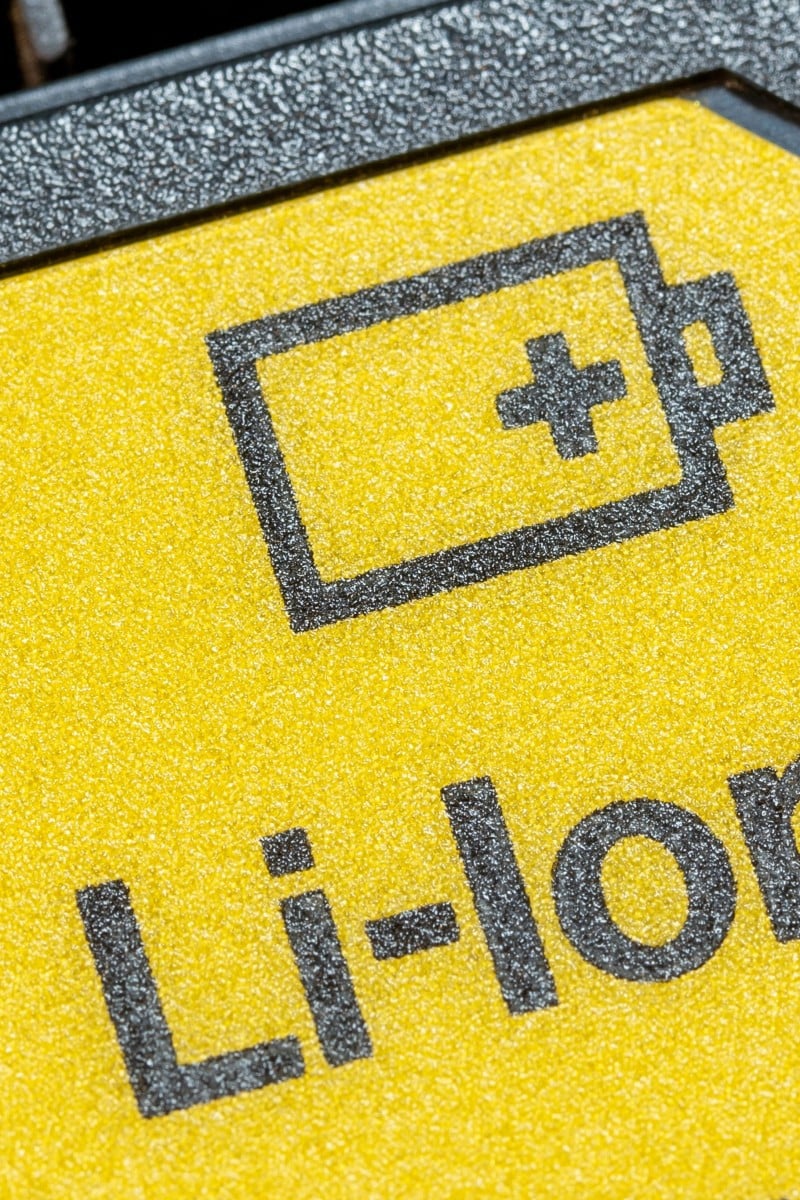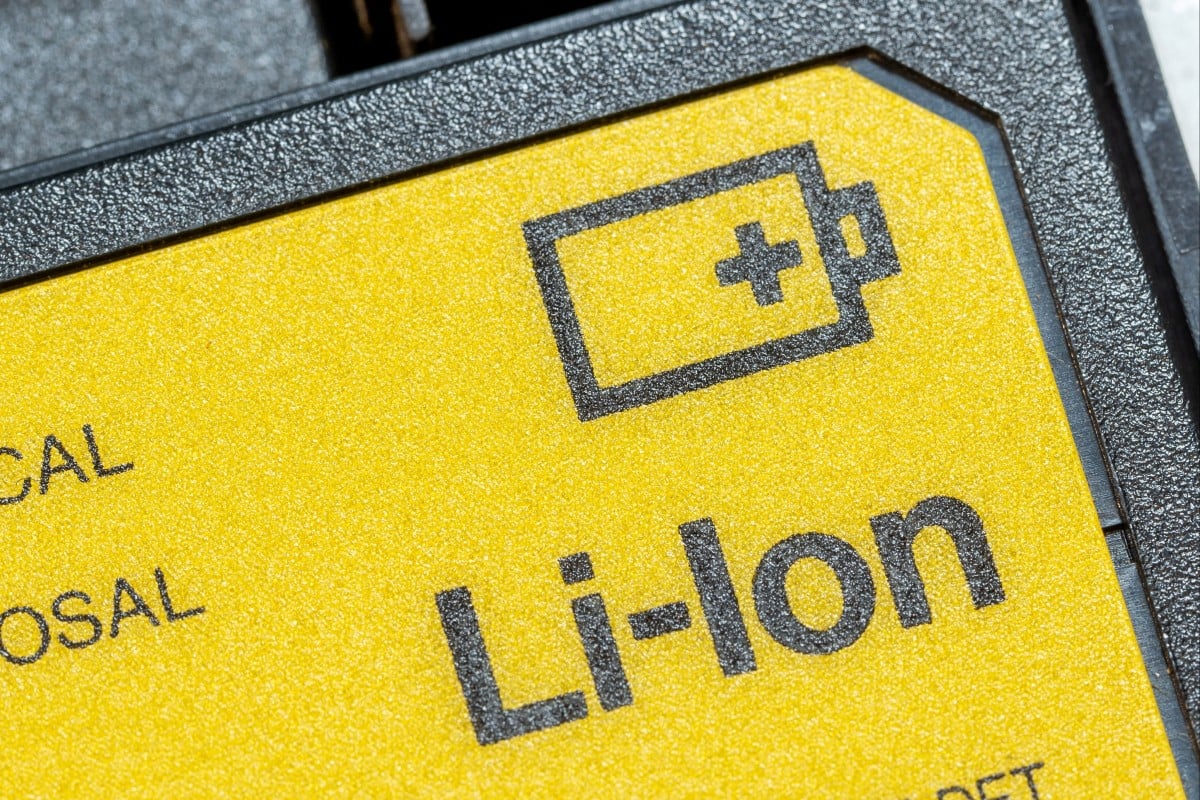
Study Buddy (Challenger): What are lithium-ion batteries and how can they be dangerous?
This page is for students who want to take their reading comprehension to the next level with difficult vocabulary and questions to test their inference skills.
 Learn some safety tips for the lithium-ion batteries used in tech gadgets. Photo: Shutterstock
Learn some safety tips for the lithium-ion batteries used in tech gadgets. Photo: ShutterstockContent provided by British Council
Read the following text, and answer questions 1-9 below:
[1] The lithium-ion battery from a portable fan fell out of a commuter’s bag in a Hong Kong train carriage and caught fire earlier this month. A 26-year-old man sitting next to the commuter was injured. The train was arriving at Yau Tong MTR station when the incident took place. Here is what you need to know about the potential dangers of gadgets that use lithium-ion batteries.
[2] How widely are lithium-ion batteries used?
A lithium-ion battery is a rechargeable battery commonly used in mobile phones, laptop computers, portable power banks, rechargeable fans, e-bikes and certain electric vehicles.
[3] What are the signs that you should stop using it?
The Consumer Council advises users to stop using any product with lithium-ion batteries and unplug the charger if the batteries are deformed, damaged or overheated. The United States-based Electrical Safety Foundation also suggests users stop using devices or batteries that have an unusual odour, a change in colour or excessive heat. People should also stop using a device if the battery changes shape, starts leaking, smoking or fails to keep its charge. Damaged or overheated batteries could start fires, it added.
[4] Why will batteries wear out?
According to the Fire Protection Association in Britain, lithium-ion battery cells combine a flammable electrolyte with significant stored energy. If a lithium-ion battery cell creates more heat than it can effectively disperse, it could lead to a rapid uncontrolled release of heat energy, commonly known as “thermal runaway”, resulting in a fire or explosion.
[5] Thermal runaway can be caused by a number of factors, including an internal short circuit due to manufacturing defects or mechanical damage such as piercing or dropping. Other possible causes of thermal runaway include exposure to heat from an external source, overcharging and over-discharging.
[6] What should I do to ensure the batteries function properly?
Electronics should always be placed in a cool and dry spot to avoid direct exposure to sunlight. The Consumer Council advised users not to place mobile phones or tablets under pillows or blankets, as doing so may lead to overheating. It also recommended users avoid keeping the lithium batteries at full capacity for a long time as it will wear out the charging.
[7] When should I charge the gadgets?
Keeping the power of the lithium battery in the middle range will help extend its life, according to the watchdog. The Council said the battery would wear out faster if the power was kept at a very low or high level for a long time. “Once the battery is depleted, it should be recharged as soon as possible,” it said. Frequent short-term charging will not accelerate the ageing of the battery, it added.
[8] Regarding devices in storage that might not be used daily, the Environmental Health and Safety Department of the University of Washington in the US suggested that users charge the batteries to approximately 50 per cent capacity at least once every six months.
Source: South China Morning Post, October 3
Questions
1. The incident mentioned in paragraph 1 took place …
A. on a train platform.
B. outside a train station.
C. inside a train.
D. on a train track.
2. How are lithium-ion batteries different to regular ones according to paragraph 2?
___________________________________________________
3. Decide whether the following statements based on paragraph 3 are True, False or the information is Not Given. Fill in ONE circle only for each statement.
(i) If a battery starts leaking, it is safe to continue using the device as long as it is not hot.
(ii) Unusual odors and changes in colour are signs of a faulty battery.
(iii) The lifespan of a lithium-ion battery is between two and three years.
(iv) You can safely charge a lithium-ion battery that is emitting smoke.
4. Find a word in paragraph 4 that refers to something “that can burn easily”.
___________________________________________________
5. According to paragraphs 4 and 5, a thermal runaway is …
A. a dangerous condition that can happen to lithium-ion batteries.
B. a method of charging phones.
C. a safety feature of lithium-ion batteries.
D. a process that occurs when a battery is fully charged.
6. According to paragraph 6, is it safe to sleep with your phone under your pillow? Why or why not?
______________________________________________________________________________________________________
7. What should one avoid doing to their lithium-ion battery according to paragraph 7?
______________________________________________________________________________________________________
8. Based on paragraph 7, is it harmful to frequently charge lithium batteries for a short period? Why or why not?
______________________________________________________________________________________________________
9. How often should lithium batteries be charged to 50 per cent capacity, as stated in paragraph 8?
A. at least twice every week
B. once every fortnight
C. five times a month
D. none of the above
Answers
1. C
2.They are rechargeable.
3. (i) F; (ii) T; (iii) NG; (iv) F
4.flammable
5. A
6.No, because the phone may overheat.
7. They should avoid keeping the battery at a very low or high power level for a long time.
8. No, because this will not accelerate the ageing of the battery.
9. D